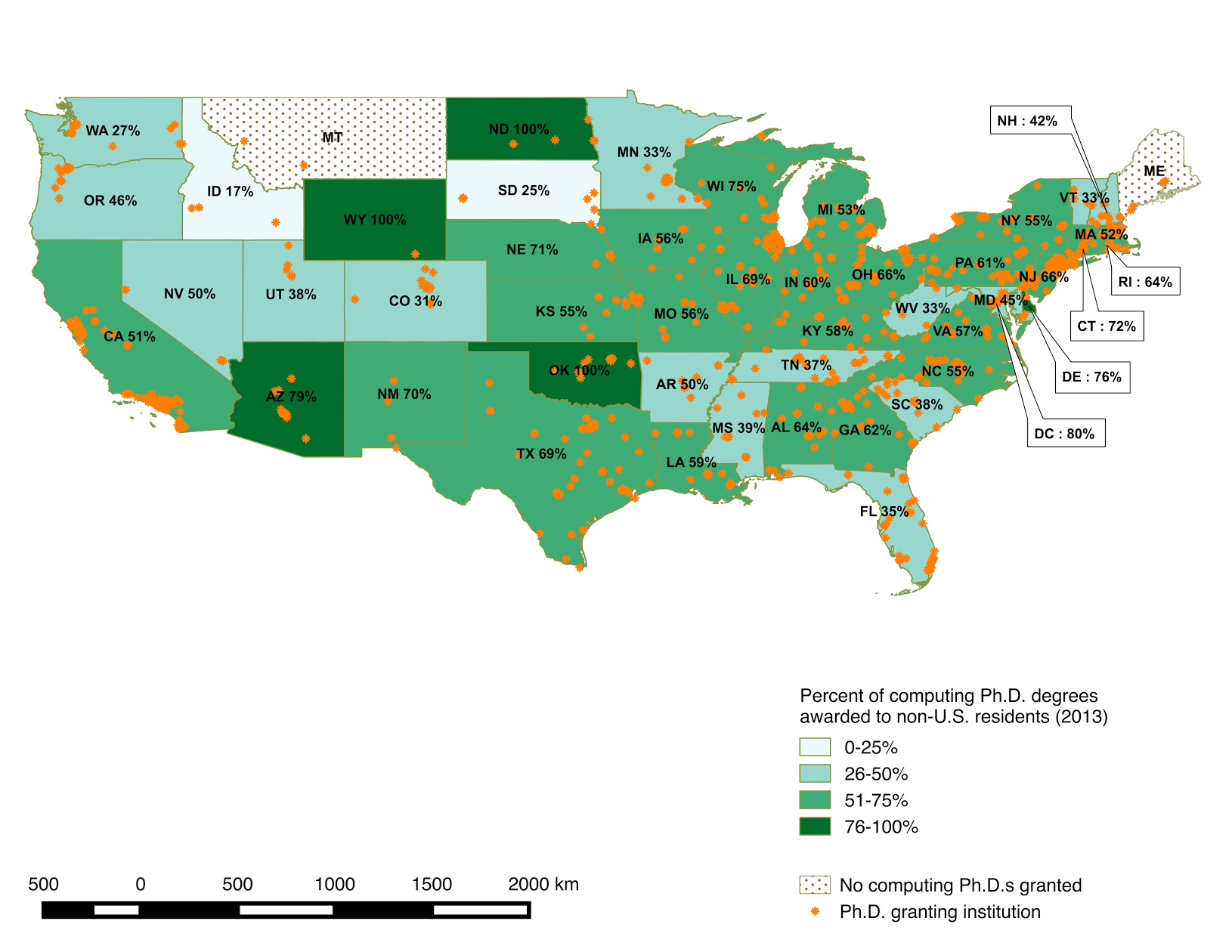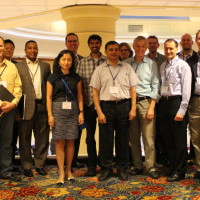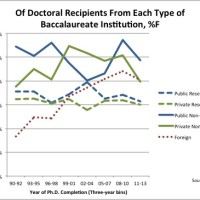Ph.D. recipients in computing fields are primarily non-U.S. residents in most states in the U.S.

Overall, non-US residents received 1,210 (54%) of the 2,244 computing related Ph.D. degrees awarded in the U.S. in 2013. This map illustrates that while non-U.S. residents received more than 50% of the Ph.D.s awarded in the majority of states, there was considerable variation across the states. Interestingly, a Pearson correlation test indicates that the proportion of computing Ph.D. degrees awarded to non-residents in each state was not related to the number of Ph.D. programs available in each state, r = .03, p = .83.
Notes. Due to space limitations, Alaska and Hawaii are not shown in the map above. Hawaii had 0% non-U.S. residents receive computing Ph.D.s in 2013, from five Ph.D. granting institutions, and Alaska granted no computing Ph.D.s in 2013, from four Ph.D. granting institutions. Data were obtained from the Integrated Postsecondary Education Data System, made available by the U.S. Department of Education’s National Center for Education Statistics. Percentages were calculated by dividing the number non-U.S. resident computing Ph.D. recipients in 2013 by the total number of computing Ph.D. recipients awarded in 2013. “Computing” programs included the following: Computer and Information Sciences and Support Services, Computer Engineering, Computer Engineering Technologies/Technicians, Accounting and Computer Science, Computational Science, and Human Computer Interaction (Classification of Instructional Programs, 2010).
 This info-graphic is brought to you by the CRA’s Center for Evaluating the Research Pipeline (CERP). CERP provides social science research and comparative evaluation for the computing community. To learn more about CERP, visit our website at https://cra.org/cerp/.
This info-graphic is brought to you by the CRA’s Center for Evaluating the Research Pipeline (CERP). CERP provides social science research and comparative evaluation for the computing community. To learn more about CERP, visit our website at https://cra.org/cerp/.









